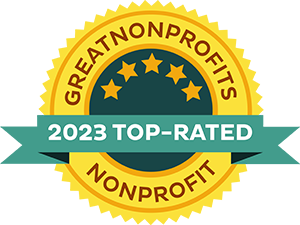By Lorenzo Jones
I was recently interviewed by a researcher from the University of California, San Francisco. The interviewer asked me, “What brought you to community organizing?” I told him, “I have only ever been brought to two places: to court and to church. I was born an organizer.” That’s the best answer I can give, because I did not have anything to do with becoming this.
The thing that makes me happiest to be an organizer is that I also happen to be Black. Black community organizers come from the same place other community organizers come from: somebody’s womb. I was born an organizer.
I found a path to becoming a community organizer in 1991 in Hartford, Connecticut, by getting involved in the Asylum Hill Organizing Project (AHOP), that neighborhood’s community-based organization. I was able to get a summer youth employment job for my youngest brother, and when they were organizing a public safety group that would be youth and parent-led, an organizer from AHOP met with me one-on-one. I was invited to participate in a meeting with other members of AHOP, new folks like me.
A Black woman named Charlene Sinclair was the executive director, leading a strategy session for us to fight for funding for youth services and programming over the summer. In what seems like a week’s time, I was at the Connecticut State Legislative Office Building with 25 other parents and young people, confronting the chief of staff for the Connecticut Speaker of the House of Representatives to demand funding for our community center. I have worked every legislative session since.
I came into AHOP as a 21-year-old young Black man. The entire staff of directors and leadership of the board of directors at AHOP were Black women. The first people to give me a shot at being an organizer were Black women. I studied under them for two years before starting an Organizing Apprenticeship at United CT Action for Neighborhoods. I joined UCAN as a part-time apprentice organizer and left 13 years later as the director of community organizing to become the executive director of A Better Way Foundation (ABWF) in 2005.
When I started at ABWF, I had never written or even tried to write a grant proposal. Program officers, ABWF members and other executive directors sat with me at ungodly hours helping me write, revise, and prepare materials for proposal submissions. Even with all the time, effort, and care invested in my development, I had not gained the skills to be an effective and responsible executive director. So in addition to the policy work ABWF and others did to build campaigns, the leadership development of people became one of our primary objectives for any campaign regiment and organizational goal.
I’ve thought to myself: What if the Black women at AHOP had the resources to keep a young Black man like me on staff to become a community organizer? At Katal, this is what we are committed to doing. Yes, we run campaigns and have policy demands, hold actions and produce new knowledge, but those things all rest on the primary objective of finding people, investing in them, and holding on to them as they grow into whatever it is they decide to be in this work. I was a young drug dealer helping to care for my two brothers and my sister (who was five months pregnant) when AHOP’s organizer did a one-on-one with me and got me involved. Since we launched Katal in 2016, we’ve had apprentice organizers in Connecticut and New York, people from many different places in life, including young folks who remind me of myself when I was that age.
Since my introduction to “the work” in 1991, the field of community organizing is very different and is still changing, particularly with the titanic shifts in the country over the past 1,000 days! As things continue to change, one thing will remain the same: we need more trained community organizers in this country.
During our first five years at Katal, we have learned a lot about building leadership and organizing capacity that increases the number of people engaged in civics and local action led by young people, LGBTIQ, Black/Brown women, seniors, adult and young people who are formerly incarcerated, and anybody otherwise directly impacted by systemic problems. And as we look ahead to the next phase of our journey, we’re committed to building on what we’ve learned and developing more community organizers as we go, transforming systems along the way.
Lorenzo Jones is co-founder and co-executive director of the Katal Center for Equity, Health, and Justice. This article was written for the #Katal5 Anniversary Dialogue Series.

